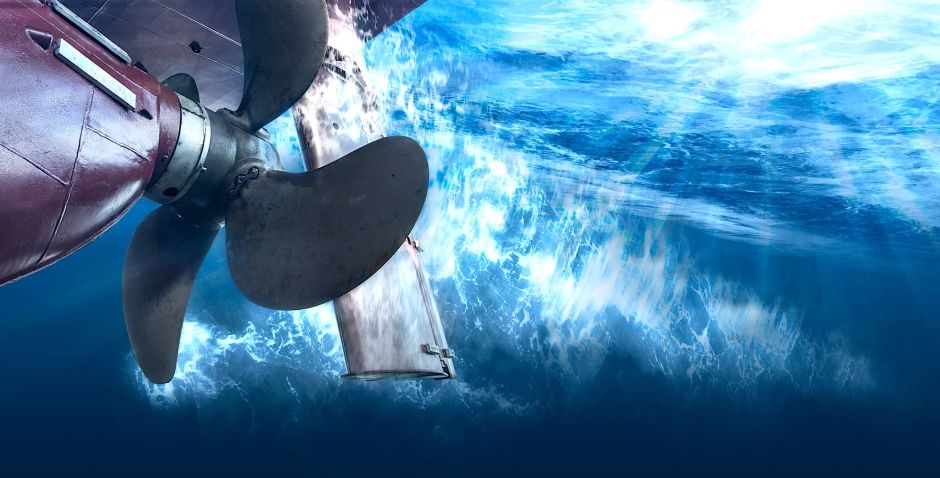Quieter for humans but not for fish

In a transition from diesel engines to electric propulsion, noise levels are dramatically reduced on board ships. In the sea, however, there will be no major difference in noise propagation. This according to new research funded by the Swedish Transport Administration.
The emission that cannot be seen - underwater noise - has received increasing attention in recent years. Reports have poured in about how marine life is being disrupted by the noise shipping makes in the oceans. So what happens when shipping electrifies and switches to alternative fuels? That it will be quieter on board with electric operation may not be surprising, but studies have pointed out that it will also be quieter under water. Torbjörn Johansson, researcher at IVL, who led the project, however, had difficulty buying this, which also became his entrance to the Silent@Sea project.
“In those studies a small electric boat was compared with a much larger conventionally powered boat. Of course the small electric boat was quieter than the larger one. In our project, we have compared sister ships with each other and hybrid ships that can run solely on electricity or with diesel generators on. What we have done is quite unique.”
In the project, three case studies have been carried out with electric hybrid ships - Forsea (now the Öresund Line, which has two electric ferries that operate in Helsingborg and Helsingör), the Ferry Company and Styrsöbolaget all put up ships.
“In addition, we did a case study with LNG on a Furetank's boats.”
So what have they come up with? In short – it will be quieter on board and in the air, but not in the sea when ships are powered by electricity.
“Crew and passengers are less disturbed by the ship's noise. It will also be better for people who live near waterways because the boats will be quieter. However, there will be some new sounds, some whining sounds with fairly high frequencies. It is of course not on par with noise from diesel engines, but it is also interesting that when it gets quieter, you start to hear things you didn't hear before. On the Ferry Line's road ferry across Gullmarsfjorden, for example, it was discovered that the radar makes quite a lot of noise. This was unheard of before switching to electric operation.”
However, In the sea, there is no major difference in the noise levels when switching from diesel to electric operation.
“This is because it is the propeller that generates most of the sound. So if you want to address the problem of underwater noise, it's better to look at it and the hull design than the electrification itself.”
Torbjörn Johansson explains that it is much like with electric cars. In town or in the areas where we live, they are quiet, but as soon as they hit the highway, they are basically as loud as cars with internal combustion engines because it is mainly the tires that generate noise. Therefore, it can be quieter with electric ships that run at a lower speed, for example in a harbor environment. The measurements in the study were made at cruising speed.
“The crews have been very positive about the transition to electric propulsion. The working environment is perceived as much better. It is easier to concentrate, to have a conversation and you don't get as tired.”
But it is not only electric operation that creates a quieter environment on board. LNG also seems to have a positive impact, which surprised the researchers.
“We took measurements on a hybrid ship. And it was actually quieter on board when the same engine runs on LNG than on diesel. Although there were no huge differences, they were audible”, says Torbjörn Johansson.
Noise from ships powered by LNG or electricity and its effects: a cross-domain investigation: Final report of the Silent@Sea project has been written by Torbjörn Johansson, Carl Andersson and Julia Winroth at the IVL Swedish Environmental Institute. Anders Genell at VTI and Fredrik von Elern at Rise.
-
 EU: Sjöfartens utsläpp ökar
EU: Sjöfartens utsläpp ökar -
 Sociala relationer påverkar val av bränsle
Sociala relationer påverkar val av bränsle -
 Sjöfartens omställning kräver ”mjukare” påtryckningar
Sjöfartens omställning kräver ”mjukare” påtryckningar -
 Hon hade avtalad tid med Kapten ynkrygg
Hon hade avtalad tid med Kapten ynkrygg -
 Lighthouse omvärldsanalys 2025 – osäkerhet och tullar präglar sjöfarten
Lighthouse omvärldsanalys 2025 – osäkerhet och tullar präglar sjöfarten -
 Se seminariet Shipping in the Marine Environment
Se seminariet Shipping in the Marine Environment -
 Vad betyder egentligen de 90 procenten?
Vad betyder egentligen de 90 procenten? -
 Hålla där...
Hålla där... -
 Ny rapport: Klimatförändringarna ett hot mot de flesta större hamnar i världen
Ny rapport: Klimatförändringarna ett hot mot de flesta större hamnar i världen -
 Nytt AI-verktyg tar lasthanteringen till nästa nivå
Nytt AI-verktyg tar lasthanteringen till nästa nivå

